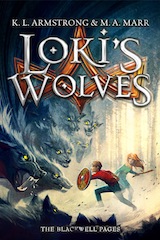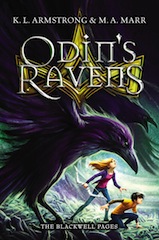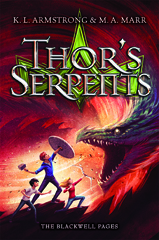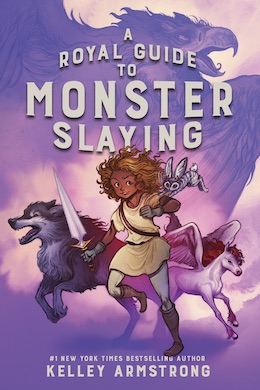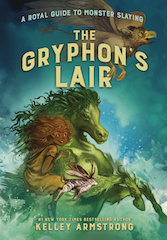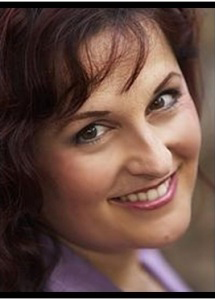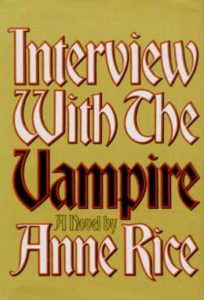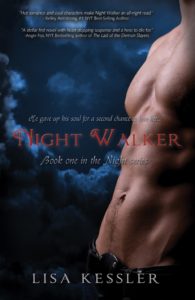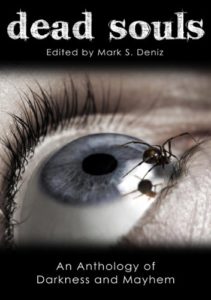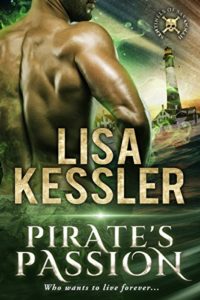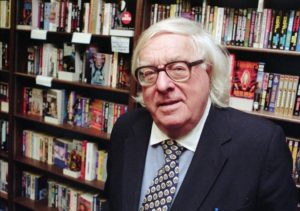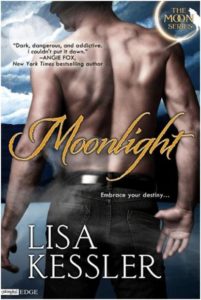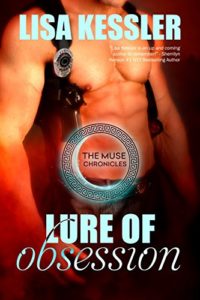Podcast: Play in new window | Download | Embed
Subscribe: Apple Podcasts | Spotify | Amazon Music | Email | TuneIn | RSS | More
An hour-long conversation with New York Times-bestselling author Kelley Armstrong, author of numerous fantasy, mystery, and thriller novels in multiple series for adults, including the thirteen-book Otherworld series, which began with her first novel, Bitten, and other series and standalone novels for young adults and middle-grade readers.
Website
kelleyarmstrong.com
Twitter
@KelleyArmstrong
Facebook
@KelleyArmstrongAuthor
Kelley Armstrong’s Amazon Page
The Introduction
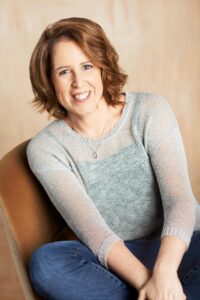
Kelley Armstrong is the bestselling author of numerous fantasy novels, mysteries, and thrillers, for adults, young adults, and middle-grade readers, both standalones and in multiple series.
Born in Sudbury, Ontario, she grew up in London, Ontario. She went to the University of Western Ontario to study psychology, with plans to become a clinical psychologist, but on the brink of grad school, realizing such a career would limit her writing time for many years, switched paths and went to Fanshawe College in London, studying computer programming.
While getting her education, she married and had first child, a daughter, then took a full-time job programming for a bank while continuing writing. She sold her first novel, Bitten, in 1999, and had two more children, sons, before it was released in 2001, at which point she quit her job to write full-time, which she’s been doing ever since.
Among her series: Otherworld, Cainsville, Rockton, Darkest Powers and Darkness Rising, Age of Legends, and the Nadia Stafford crime trilogy. She has also written several serial novellas and short stories for the Otherworld series. Starting in 2014, a Canadian television series based on Otherworld, called Bitten, aired for three seasons on Space and SyFy. Kelley lives in rural Ontario.
The (Lightly Edited) Transcript
So, Kelly, welcome to The Worldshapers.
Thank you.
Now we’re both authors in Canada, but I don’t know that we’ve ever actually met each other in person anywhere at any conventions or anything like that. I can’t think of a time.
I don’t think so. We’ve probably passed somewhere at some convention because it’s a, you know, relatively restricted literary landscape. But, yeah, I don’t know. I don’t recall.
Yeah, it’s a small literary landscape, but it’s a very, very large physical landscape. And Saskatchewan and…you’re in Ontario?
I am.
Yeah, they’re actually a long way away from each other.
They are.
When we moved up here from Texas when I was eight years old, it was the year of Expo ’67. And I was excited as we were leaving Texas because I thought, we’re going to Canada, and I’d get to go to Expo 67, and my parents had to point out to me that…
It’s a long way.
…we would be closer–we’d be just as far away from Montreal in Saskatchewan as we were in Texas; basically, it was pretty much the same distance. In my defense, I was only eight, so.
Exactly.
Well, so this…you have two books coming out this week–month–which we are going to talk about a little bit. But first, I’ll do what I always do with this, which is take you back into the mists of time–I’m going to put reverb on that one of these days, the mists of time–and find out, well, first of all, where you grew up and then how you got interested in writing. And probably you started as a reader, because we all do, and the sorts of things that drew you into this field and, you know, all of that stuff. So, how did that all happen for you?
Yeah. So I grew up in London, Ontario, and it is that typical thing where you start off by reading. I was a very young reader. I was the oldest child, and my parents were very keen on teaching me how to read. Neither of them was a huge reader themselves, but they understood literacy was important, and so, their first kid, they were doing everything right, making sure that I was learning to read. So, every night, after dinner, while Mom cleaned up, Dad would be reading these books. And I very quickly learned to read that way. And for me, it turned into, “I want to do that.” I would take those stories and do what we would now call fanfiction, where I would take what I had heard and maybe create a new story for those characters or a story with different characters in that world as some way of working on what the author had created and building my own stories on it and then, getting older, was moving into creating entirely my own stories.
Well, what were some of the books that influenced you back then?
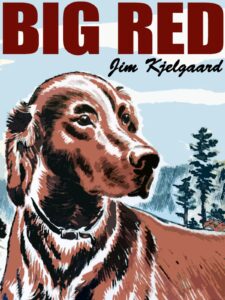
So, certainly back when I was very young, I can’t really recall. We have sort of gone through trying to work that out. It was a whole lot of really simple Golden Book readers. So, none of them stuck. So, the ones that stuck came later. There was one series about Irish setters, and they were adventure series where each…one was Big Red…and each one had a different Irish setter.
I remember reading Big Red.
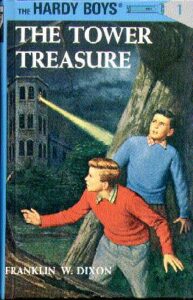
Yeah, exactly. So all those…Hardy Boys, too. Read so many Hardy Boys. They always had much more interesting adventures than Nancy Drew, so I devoured Hardy Boys. And some of the classics, but really I was looking at the adventure stories, the mystery stories, and the stories with the animals.
So when did the fantasy side of things start to creep in?
So yeah, people always ask, where did that come from? And I always jokingly blame too many early Saturday mornings watching Scooby-Doo. That supernatural-combined-with-the-mystery was perfect. But I think it was more, when it comes to stories, mythology has them, so I very quickly got into mythology. I knew the Dewey Decimal System number for the myth and folklore section. So I would be there pulling down those books when I sort of ran out of stories in my own area to read.
When you started writing as a young person, well, did you share your writing with other people? I always ask that because I did, and I found it was like, oh, people actually like the stories that I tell.
Exactly. Yeah. Because I was so young and I was telling stories before I could write them down, so, at that age, you don’t have any of that…when people get older, and they start thinking, do I want to share this or not? As a kid, no, of course you share it because you have created this thing. So certainly, early on, sharing everything with parents, siblings, etc., friends and so on. It’s only when you get older that you start double-guessing, do I want to actually share this?
Did you have any teachers that sort of encouraged your writing along the way in high school or around that time?
I did. I certainly did, certainly in both elementary and high school. I was doing a lot of writing and getting a lot of really good feedback on my writing. So I often joke that, you know, they really tried to steer me away from the fantasy, the supernatural, etc. “You could write normal things,” but the normal things were what interested me. So it’s good that they still encouraged me despite the fact that I was not necessarily writing the kinds of stories that they were hoping for.
I always tell a story that when I was about eleven, I wrote my first complete short story that I remember actually finishing, and it was called “Kastra Glazz: Hypership Test Pilot.” So you could tell where my mind was early on. And there was a teacher who, you know, he was my junior high English teacher, and I showed it to him and he took it seriously, and he critiqued it and said, you know, “I don’t understand why your aliens to this and why does your character do that?” And I still credit that with taking it seriously, taking the writing seriously, with having helped set my mind on, “Well, I’m going to keep writing, and I’m going to write better things going forward.”
It is, and it’s very important because, yes, even if it’s not necessarily what they’re hoping you would write, or it’s not a genre that they read, just that overall encouragement means a lot. Without that, I wouldn’t have gone on.
But you didn’t actually go immediately into writing. You studied psychology to begin with, I believe, is that right?
Yeah. I went to Western for psychology undergrad. I was planning on going on to masters and doctorate and becoming a psychologist. I was heading into grad school and realized I was heading into that kind of a career where there’d be a lot more schooling, and I would not be writing, because university was the one time where I didn’t have time to actually write fiction. So I thought, I’ve got this long time where I’m probably not going to be writing, do I want to wait that long before I try to at least…? My sort of goal was, maybe someday I’ll be able to be a part-time writer and part-time at some other career. So I switched gears there and went to college for computer programming. I had been doing that way back from the Commodore 64. It was a big interest of mine. So I did that. Got your typical corporate cubicle job that let me write and study the craft of writing.
Do you find…I mean, psychology would tend to tie into writing in some way. Did you find that what you studied in that field has been beneficial in your writing career? And the computer programming? I mean, I always say, nothing you do is wasted when you’re a writer. Have you found that?
It’s true. Because people always sort of look back and they say, you know, was that a waste, or when I see young people heading into college, university, and their ultimate career is writing, and they just want to totally focus on that. And I say, anything that you take is going to help. Psychology for characters, absolutely. Because it helps with my character backgrounds to know if I want a character who is like this at 35, what type of background did they probably have to get them there or what life experiences could they have had that get them where I want them to be at that age? And of course, programming meant that I did not have to hire anyone to, you know, code those early websites.
I had a Commodore 64 for years, and I did a lot of programming at the time, too, in BASIC, and I did some quite complicated things. You know, I created a whole music entry system to use that synthesizer chip that it had. And you had to put in like three different values for each note. And yet I did all that, and it worked. And then I thought, “But, you know, other people do it better than I do.” And I was never tempted to stick with programming because, again, it was more like, well, that takes a lot of time. I could be writing.
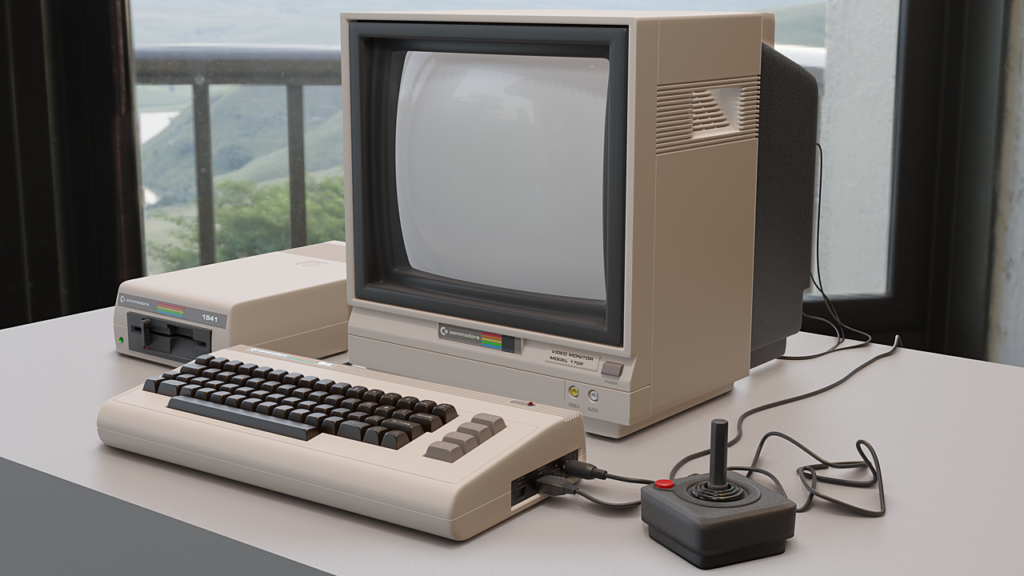
It did. Yeah. I was doing the old text-based adventure game, so I was writing text-based adventure games, which of course took a whole lot of work just for a very short, short and simple one.
Well, your first novel was Bitten, which came out in 1999 or was sold in 1999. It came out in 2001. How did that come about? That’s kind of your breaking-in moment. Or had you had some short stories before that, or how did that work for you?
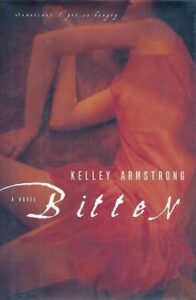
Yeah, I had had a couple of short stories published, but nothing significant. And I had been writing novels. So, when I made that choice to go into programming instead of going on to graduate school, that meant that I then knew that I had to get serious about writing. And it meant writing novels, joining writers’ groups, taking writing courses. So I was doing that. I was writing novels. I was writing novels that were to market. So whatever was…I had one that was, for example, a female private eye, in the time period when we were seeing a lot of that. When I got to…so, I finished three novels, no interest, no interest from publishers or agents. And then, I decided I was going to work on this one idea that I had for a book about female werewolves. And I figured nobody’s going to ever want this, so this is just totally for me. And it was all freeing that way, too, like not be saying, “I’m writing this in hopes of getting it published,” But just I’m tired of trying to get stuff published. I’m just going to write something for myself. Got it done, and of course, started thinking, “Well, is there any chance?” So I had a writing instructor take a look at it, and he thought that it had promise, so he offered to recommend me to an agent, and she took it on, and it took off from there.
And there’s been quite a few since then.
There has been, yeah.
So is it a fairly straightforward, you know, once that one came out, it was successful, and you’ve been doing it ever since?
Yeah. Not…certainly now people look back and say, well, clearly Bitten was successful, and I’m like, not actually, no. The publisher, my American publisher, bought the first two and then was not interested in a third book because they just weren’t selling. They started selling more with the third book. But yeah, you certainly get that where…they were successful enough that I was able to keep publishing, and from where I stand now, 20 years later, that’s the big measure of success, is not how much you make or how many copies you sell, but just can you keep finding a publisher to want more books?
Yeah, that sounds familiar.
Yeah.
Now, I’m going to ask you this, even though as somebody who’s worked in Canada as well. I think I know the answer. But have you ever…has being a Canadian author but published in the US market, has it been a good thing or a bad thing, or has it made any difference at all, do you think?
It’s been a good thing for me because certainly I make more. I mean, having that extra market…I mean, a Canadian bestseller is, what, 5,000 copies? I mean, that’s not going to give you an annual income even if you’re doing one per year. I mean, being able to have that US market, that’s where sort of the much bigger incomes coming from. And then that drives getting a UK publisher, getting the foreign publishers, and it’s all of that. I mean, Canada is great, but actually being able to make a living off of strictly being published in Canada would be tough.
Yeah. Well, let’s talk about what you have coming out this month. You know, two books in a month is not bad.
It’s weird, yeah,
And another one coming in October, I think.
Yeah. And it was kind of an odd thing because, yes, so what is my second middle grade came out early this month. There was supposed to be a standalone thriller coming out in August, because they usually obviously don’t keep them quite so close, but the standalone thriller got bumped up to the end of June. So I end up…because it’s the same publisher in Canada for them, Random House, and they didn’t see any crossover t you’ve got. You’ve got, like, your fantasy middle-grade book and your standalone adult thriller, they’re like, “There is no crossover.” So it’s not like I’m going to be competing with myself. It just makes it tougher for me promoting to be making sure to mention that I have two books coming out.
Well, and I did want to ask you, even before we start talking about The Gryphon’s Lair, which is the middle grade, um….when did you make the step into the. Both middle grade and young adult markets, I guess?
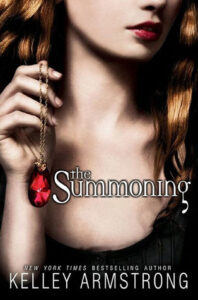
Yeah. So for a young adult, that came back…so, the first one came out 2008. Would have meant I was writing it in 2005. And that was back when you were seeing a little bit more interest in young adult books. I had a daughter who was hitting that age, she was twelve, thirteen, and she wanted to read Bitten. And I was like, “Absolutely not.” So I said, how would I write something that is that type of book in that world, but with teenage characters. So that became The Summoning. And then after it was written, you were seeing publishers wanting that, because that’s when Twilight started taking off. So, they were looking for more paranormal YA, and I happened to have some. So then that one sold. Middle grade took a little longer. I have sons, too, so when they got to be the middle-grade age, I was writing with a friend (Melissa Marr), she also has a son that age, and we decided that we would co-write middle grade for our son. So that was the first trilogy, the Blackwell Pages, based on Norse mythology. And then I kind of took a break from middle grade there and then went back. Last year was the first in this new series.
OK. I have to ask you, does your daughter read your books? Did she read that? Because I have a daughter who’s nineteen now and the only one of mine she’s read are ones I’ve actually read out loud to her, and she really seems to be reluctant to read my stuff. And I think it’s because if she doesn’t like it, she wouldn’t know how to tell me.
I know. And that’s really tough. Now, my daughter reads everything, and she’s obviously, she’s like twenty-eight now, so if she read everything…
She’s probably read Bitten by now.
Yeah, exactly. She reads early…she reads sort of drafts when they’re at the point where I want her to take a look at it. She helps with that. Now, my sons are a different thing. Yes. They read the trilogy that I wrote them, but let’s just say that they are not exactly saying, “Hey, Mom, what else do you have?”
So I had, I still have, a niece, when she was a teenager–this is a long time ago now, probably my first book–and she said she didn’t want to read it because she didn’t want to know what was going on in her uncle’s head. Which I thought was funny.
Exactly. I mean, that is the weird thing, too, if you write. Yeah. Bitten has some sex scenes in it, and it was like, yeah, do you really want to know what your mom’s going to write for that scene? No, the answer is no.
Yeah, that’s certainly part of it. Well, we’re gonna talk primarily about The Gryphon’s Lair book, but we’ll also mention Every Step She Takes, which is the standalone that’s coming out, because we’re going to talk about your creative process and it will be interesting for me to hear the difference between your planning and writing for an adult novel, and your planning and writing for the younger age group. But first of all, how about a synopsis about The Gryphon’s Lair?
So, The Gryphon’s Lair is book two in a series. The basic concept is that we’ve got this set in a fantasy world, completely fantasy world, with monsters. This world has monsters, but they’re based on science. So, there’s no magic in this world. If you’re going to have a, say, a basilisk that can turn people into a stone, it can’t really do that, but it can shoot a neurotoxin that can paralyze someone. So you’re doing things that are science-based rather than magic-based. The main character is a princess. I mean, there are a lot of princess books out there. I wanted to take my try at going ahead and doing that in a slightly different way. And she is a twin. She’s supposed to become queen, and her brother is supposed to become the Royal Monster Hunter. That’s how this always works. And she would much rather be the Royal Monster Hunter. He would make a better king.
So, an accident happens and they’re able to switch places. So, in the book one, we saw her first sort of forays as the Royal Monster Hunter, book two, we’ve got, she is in charge of a young gryphon, because while it’s called A Royal Guide to Monster Slaying, the slaying part is pretty light. It’s really more like being a monster conservator or a monster ranger, where you’re trying to help people live with, you know, monsters being in that land. And sort of moving the monsters out when they get in, killing them if you have to, but it’s more about a conservationist idea. So, she is raising a young orphan gryphon, and it becomes a little big and dangerous. So in book two, she has to take it into the mountains where the gryphons live and try to take it back home.
Sounds like a great setup for a story.
It’s a lot of fun.
Maybe just a brief bit about Every Step She Takes, too. When I say they’re coming this month, I should explain to listeners that we’re recording this in June. I guess Gyphon’s Lair is already out, right?
Yes. And then, yeah, every step she takes comes out on the 30th.
So it’ll be out when this airs, which goes live, which will probably be…it might be August. So if you’re hearing this, you can get these books.
Exactly.
So, Every Step She Takes, maybe a little bit about that.
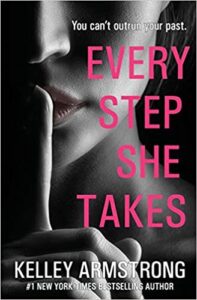
Yeah. Every Step She Takes, standalone thriller. It’s about a woman, Genevieve, who is living in Rome, and she’s living a very ordinary life. She’s a music teacher, has a boyfriend. She’s very happy with this life. She’s a former American. And she gets this package addressed to Lucy Calahan, which is a name she hasn’t used in 10 years. Turns out that she was the victim of a scandal when she was 18. It was a celebrity scandal, and in trying to get out of that, she ended up finally just leaving and coming…and going abroad, and ended up in Rome. Now she’s getting a call from somebody who was involved, who wants to make peace with it, who wants, who has come to understand that her role in it was not what she thought and called Genevieve back to make peace. And she goes back to make peace, and the woman ends up dead. So, that’s kind of a problem, because she is dead and Genevieve is being framed for it.
So these are two very different books…
Very different books, exactly.
So let’s talk about how these things come about. I mean, it’s a cliche to ask, where do your ideas come from, and yet, it’s a valid question. Maybe if you don’t like it that way, I often say, what was the seed from which this novel grew?
Exactly. Exactly. And for the Royal Guide series, that was actually…it comes from two things. So it comes from video games. Witcher. I was playing Witcher years ago, playing probably the second or third one, and thinking, “You know, I really like the monster hunter concept. I really it. I feel like I’d love to do something with it in fiction. Not that idea obviously, but just that very basic monster-hunting concept. And I played around with it as a young adult book. So the book was pretty much the concept was the same in that it was a princess who had a twin brother, they really wanted to switch roles. I wrote about 5,000 words of it, and it wasn’t really gelling. Just something wasn’t working. And I put it away, and every now and then I would come back to it and say, “I really like this concept. What’s not working?” And one day just had this epiphany of, “What if it was middle grade? What if, instead of being seventeen, she’s twelve.” So that, of course, meant a total rewrite, but when I rewrote, I could see, yes, that absolutely works with…it had that level of fun and lightness that it needed. The original version with the teens made it much darker, and it just wasn’t quite gelling. But in the middle-grade version, it just popped.
And that one came from sort of…not exactly random, but, you know, just something else that you were doing. Is that kind of typical of where ideas come from? They can come from anywhere, in other words?
Yeah, it certainly can be, where it’ll come from something that sort of sparks an idea, and then I run with it, and by the time you get to the final product, it doesn’t necessarily bear any resemblance to the original concept, or the original where I sort of took that from. I mean, nobody’s going to read Royal Guide and think, “Aha, she was clearly influenced by Witcher,” which is a very adult and very different story. But yes, I can sort of say that that’s where it started, and then my brain keeps on spinning on that concept until I make it my own.
On the mystery side, is it any different?
No, it’s very similar. Certainly with the, sort of grain for Every Step She Takes, we see a lot of things now, particularly when we see #MeToo coming out, where we see these stories of young women who made mistakes in some way and the way they were demonized for them. I feel like, I hope we would not necessarily do at this point, where we can look, where, at the time, it was very clearly the young woman had seduced the guy who was in power, etc. But I was fascinated by the way that we presumed that she was guilty, even when you can look back now and she would have been like, you know, eighteen, nineteen, twenty, early twenties, and the guy’s like forty or something, and yet we still somehow see that Lolita complex, where clearly she was the instigator, and she’s the one who got all of the fallout. That’s where that idea started from, but of course, once I took it and ran with it, it does not bear any resemblance to any actual case.
Now, what does your planning process look like? Do you do a detailed outline? You know, are you a pantser a plotter? There’s another cliche question for you, but what does it look like to you?
Yeah, I think like a lot of writers, I’m somewhere in the middle, and I’ve developed my own sort of process by now, where, when I go into a book, I have a very good idea of that Act 1. I know what the setup is going to be. So if we were to take something like Royal Guide, for the first book, I know exactly what the setup is: these two twins, and they’re in the wrong positions, and we’re going to have…a gryphon is attacking, and we’re going to have, the brother goes off after it, sister is left behind, and she’s going to sneak off after them. Things are going to go horribly bad, and we’re going to lose our current Royal Monster Hunter, which then means that that position is now open for someone who’s way too young. So that’s Act 1. And I know that going in. I know my characters. I know my setting. Once you get past that, I know the major points. So I would know, how do these two add up switching rules? What is she going to have to do to prove herself? What is her voyage going to be? What do I want? I mean, often in a story like that, you get this very elongated training session, where a character is going to be the Royal Monster Hunter, so now let’s spend half the book showing her in training. And I knew I did not want that. So, how do I work around that? So, I would know all the major parts, and the final act, what she’s going to face down, she’s obviously going to face down that, you know, gryphon that killed her aunt in the early part of the book. She’s going to have to come full circle and face down that gryphon. So I know that’s what’s going to have to happen. I have no clue when I start writing where this is going to happen or how it’s going to happen. Because, if I was to go and decide exactly how that happens, by the time I reach that point in the book, it would no longer fit.
On the mystery side, you often…they’re often quite intricate, and you have to be careful about what information you provide and when. Do you do more detailed planning for mysteries than you would for a straight-ahead kind of fantasy story?
You would think that I would, but I actually don’t, and it’s because a lot of the mystery is shaped through editing. So I will go into it certainly knowing who I think is the killer, etc., that could change. And mystery fans hate hearing that you get like partway through the book and change who the killer is, but it’s not like you’re being cheated because then you continue writing that, and then you finish that book and go back and you craft and edit and you put in the correct clues, you get rid of the clues that pointed in the wrong direction. It’s not as if you sort of go off on a 90-degree angle and cheat halfway through. A lot of it really is formed through that editing process of saying, OK, now that I am done, where did I put in clues that led nowhere? I mean, yes, you want some red herrings, you don’t want too many of them, or where am I missing clues that would have pointed towards this, and going back and filling all of that in.
What does your actual writing process look like? Are you like, know, a quill pen under the tree on a piece of parchment writer or…?
Computer. Yeah, because I grew up on computers. Now, I did write…my earliest stories were on a typewriter, and so, having done the longhand and done typewriters in my past, I’m still that generation that remembers what a glorious thing word processors were. Like, you did not…you could edit to your heart’s content. You didn’t have to be, you know, getting it right the first time. You could go in and edit and change things. So, yes, totally computer-based.
Do you work at home or do you go out…I mean, right now, we’re all working at home, basically, but…
Exactly. Yeah. No, I’ve got a writing cabin in the back field. So I live rural. We live on 10 acres or so, and so I’ve got a little cabin in the way, far back. It’s off-grid. No Internet. No, you know, everything. So I just go back there and work.
Sounds nice.
It is!
I was going to mention, on the word-processor side, since you are familiar with the Commodore 64, you probably remember a program called PaperClip?
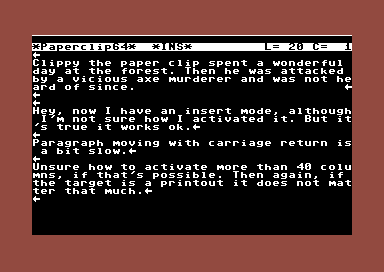
Yeah, yep.
That was my first word processor, and for a long time, in my early books, they all had 10-page chapters, because you got 499 lines of text in a PaperClip file, and that was as far as you could go.
Right, yeah, exactly.
And that works out to about ten pages of manuscript format. So for a while, all my books had the same length of chapters because of PaperClip.
I think mine, still, if you were to look at my chapters, they’d probably all be between eight and 12 pages.
Yeah. I think I still fall into that kind of a zone as well. So, you talked a little bit about working on the mystery side, on revision, and so forth, but in general, once you have a first draft, what does your revision process look like?
So, I write a first draft right through. I don’t stop. If I decide that I’m going to make a change in plot, I mean, something as drastic even as getting halfway through a book and saying, “OK, I’ve decided that this character’s father is now dead,” even though he’s been alive until this point, I’m going to decide that he died, like, ten years ago, I don’t actually stop and go back and fix it up. I just keep on going as if he’s been dead for ten years and making lots of notes on things that I want to change. So, once it’s done, put it aside for a couple of months, come back to it. Do usually once sort of go-through on the computer, which is more of a revision one, where I’m moving stuff around, adding stuff in, you know, killing off father, you know, ten years ago, etc., going and fixing all of that. And then, if I have time, doing a round of paper edits, because even though I’m so computer-based for my writing, I still find that I edit best on paper, paper and pen, so I can see it, and it looks like an actual book story. And then it goes off to the editor after that.
Yeah, it’s…I’m a little bit older than you, but I also started on a typewriter and then switched to the computer, and the way that you write sounds very much like the way that I do, too, and I was…who was it I talked to? I guess it was John Scalzi I talked to…one of my very first interviews on here, and he talked about how he does a rolling revision, but he’s always written on a computer. And he never went back to that time when you pretty much had to do a single draft all the way through before you did your revisions. And he thought that there is a connection between having once worked on a typewriter and doing it that way. I don’t know about that.
I don’t know, because, yes, certainly in my early word-processing days, even with Bitten and my early novels, I did that, where I would write, and I would go back and edit and I would write and go back and edit. But I got so caught in that endless editing, and I would be editing things that I would later just cut right out because I’m pretty ruthless in the revision and I will cut out entire chapters. I will lift out 20,000 words and put in 20,000 words of stuff. It’s much harder to do that if I’ve spent time perfecting this, you know, chapter. It’s easier to pull out a first draft chapter than a chapter that I have polished, you know, five times, so…
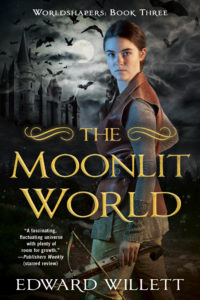
And the working on paper resonates with me too. I am currently doing page proofs for my next book from DAW, The Moonlit World, which, by the way, is werewolves and vampires. But yeah, you know, once you get to page proofs, there’s stuff that you can’t believe that you left in the original file that you sent because it just somehow comes out differently when you see it in print than when you see it on the screen.
It does, yeah.
Now, once you’ve got a draft, you mentioned that your daughter reads stuff, do you have other beta readers? Do you do that, or are you self-contained more?
Yeah. It completely depends on what the project is. If I’m gonna be working on a series, if I’m partway through a series, there’s fewer early editors at that point. But if it’s a brand-new standalone or if it’s a new first novel or if it’s a new novella, I’m more likely to send it to my daughter, or I’ve got critique partners, and they will see it before my editor does. Now, if it’s, you know, say book three in a series, book four in a series, it’s going to go to my editor first, because by that point, I kind of know what I’m doing, and there’s not as much of that, “Is this working?” The editor knows what to expect, and I can go there. And then a critique partner or my daughter may come in at a later point if they just say, “I’d just like to read it.”
What sorts of things do you get…you mentioned, “Is this working?” Is that kind of the focus of that level of reading?
Yes, certainly for that first–if it’s standalone, if it’s first in a series–I’m really sending it to somebody to say, just generally, “Is this working? Is this flowing? Do you see any major issues with it? Do you see that it’s too close to anything that you may have read?,” even, because you never know, you can send it to somebody, and they’re like, “I just read something that’s very similar to this recently.” So, it helps to have that totally trustworthy critique partner who, before the editorial process, can help me get it cleaned up, because, by the time the editor sees it, I don’t want to be embarrassed.
One thing I forgot to ask was, are you a fast writer or a slow writer?
I am fast, and I do a fast first draft. I think it’s because of that mow right through it, not stopping to edit. I want to stay in the voice. I want to stay in the mood, and I want to keep that going. So I’m going to…now I’m not nearly as fast as some people I have met. I am relatively fast in getting that first draft done.
It’s always relative. There’s…no matter how fast you are, there’s somebody else…
Yeah, exactly.
…who says, “Oh, I did a hundred and fifty thousand words in a week.” When you get to the editorial stage, what sorts of things do you generally find the editor commenting on? What kind of changes are requested, if any?
There are always…it’s always interesting to go back and see because there are always those things that, in the back of my mind, I knew was a problem. But even after 30-odd books, I’m still at the stage where, “Yeah. OK, that’s probably a problem,” but I’m hoping it’s just me because fixing it is a lot of work. And then they come back and say, “Yes, that is a problem,” OK, thanks. And then they say it independently, where I don’t say, “Is this a problem?” I do, sometimes, if I’m concerned. But that independent verification of, maybe a plot point that I feel like, eh, that’s not quite gelling for me. Or they might come back…certainly in a series, especially, coming back with, like, “We need more of a reminder of who these characters are, we need less of a reminder of, you know, plot points from previous books because we don’t want to…if someone hasn’t read previous books, we don’t want them to be not willing to go back. If they already know who the killer is in the past two books, they’re not going to want to go back and read them, right?
You’ve worked with a lot of different publishers, which means you’ve worked with a lot of different editors. How has that been?
It’s been good. Ninety percent of the time it’s such a good experience. They bring up the things…I always say that, you know, most of my editors, there’s about 80 percent of what they say I dead-on know, “Yes, you’re totally right. Either I already knew it or, as soon as they say it, I see it. Then it’s about 15 percent where I’m not sure, and I have to think more about it. And it’s only about five percent where I can say, “I understand what you mean, but that’s not right for my book.” So, 90 percent of my editors have fallen into that group. There’s always the occasional one that you’re just not going to gel with. Whatever I’m working on, they are looking for something different. They very clearly are looking for a different kind of story than the type of story that I tell. And I can’t sort of twist myself to give them the type of story they want, because that’s not what my vision is for that book.
You were talking about the editors saying things that you kind of knew in the back of your head. My main editor, of course, is Sheila Gilbert at DAW Books. And all of us who work for DAW, like Tanya Huff and Julie Czerneda, and all those people. We all have this thing in the back of the head, “What would Sheila say?” And even though, you know…I do exactly the same thing. I will know that there’s something there that, you know, “I bet she says something,” but I’ll think, “Maybe not.” And sure enough, she always comes back and says, “You know, I didn’t…this needs…whatever,” you know. So…
Yeah, this needs to work. This little area here, this motivation or this plot point just needs a bit of work.
And that’s what editors are for. When I work with new writers, you know, sometimes, I’ll run into people who are concerned about what editors will do to their work. And I say they will generally make it better. That is really what they’re about.
Exactly. There’s a lot of fear, I think, with new writers, they get some kind of feeling, or they’ve heard stories where the editor is going to demand bizarre changes, like demand that you change your werewolves into vampires or your female main character into a male main character. That doesn’t happen. What they’re in there doing is just helping you shape that story, because it’s hard to tell when you’re that close to your story, whether or not it’s actually working.
And speaking of characters, one thing I kind of forgot to ask along the way was how you go about developing characters. I mean, you know who you need in the story, from the big picture. But then how do you flesh them out? Do you do a lot of character sketches or writing in their voice or any of these various tricks that some people use, or how does that work for you?
Yeah…I’ve sort of learned to do this combination where I certainly do dive in at the beginning, and I want to know who they are, what’s their biggest fear, what’s their main goal, what do they want most from life, and what do they want most from this situation? And, you know, what are some of their hobbies? What are some of their interests? What are some of their dislikes, their past experiences, all that psychology stuff? But I still have to get into the writing because I can certainly say that if it’s the first book in a series or it’s a standalone novel, when I start writing, I can say the character is like this, and by the time I’ve hit, you know, ten, twenty thousand words, that character has shifted. And then I have to go back and adjust that early part.
Yeah, that’s often a revision step for me is to make sure that the character’s consistent.
Yeah.
Do you ever find, as some do, that minor characters become major characters without your knowing it was going to happen?
It definitely happens, where, yes, you come up with what you expect to be a minor character…I always use one example from my first book, Bitten. So, there was this renegade werewolf, he was one of the bad guys, and in the first draft, I killed him off at the end of chapter three. But then was like, “I really like him. I feel like he has more to him.” So I thought, OK, fine, I’ll keep him alive till the end of the book. I kept him alive till the end of the book, and I killed him, and then I still was like, I still feel like he had more. So then, I let him live. He eventually ended up becoming part of the pack and becoming a major character. And in the last book of the series, he appears to have died, and it was kind of an in-joke for everybody who knows how hard I try to kill this character early on.
Well, I did want to ask you about series writing. I’ve been on a panel–at CanCon, I think it was–talking about writing series–the most I’ve ever done as a five-book series–what the struggles of writing a series? The challenges and the rewards, I guess.
Yeah. I guess…the rewards are easy because that readership growth and that readership loyalty, that, if the series takes off, if it finds its audience, they are right there hungry for the next book. And that’s a whole lot easier than standalones, where you’re reinventing the wheel every single time and looking for a fresh audience. So, the series has that built-in audience if it works. The drawbacks are obviously, especially when you go into a long series, running out of ideas, running out of originality. Certainly, with the Otherworld, the only reason that it got to 13 books was because I changed narrators. So, every few books, one of the minor, one of the secondary, characters would become the narrator, and the other characters would fall into the background. So, it would instead be a story about this character’s corner of the world, so you’d start with werewolves for two books, and then spin-off to a witch and get her corner of the world for two books. And then, you spun off to a ghost and get her corner of the world for a book. That kept it going through 13. Nowadays, I don’t think I would ever get that long because even by 13, by changing characters, by the time I finished the series and went on to something else, I realized how tired I really getting. I didn’t see it until I went on and did something new.
I often wonder about the challenges of continuity…I mean, even in a trilogy, continuity could be a problem. Did you do something to try to keep track of all those little details that just pile your pile up?
Yeah, yeah. There’s the series bibles. And now what I do is my daughter is in charge of those and she…when she’s doing her reading, she’ll usually read one of my books for just that, you know, for fun and for general feedback, but then later on, after it’s completely done, past proofs, everything, she’ll take it and enter it into the bible. So if there’s new information, it goes in there. And then, on the next book, when she goes and does that first read-through, she can first read through the bible, and she will in that read through notice, “OK, Mom, you said this here, and it seems to contradict something.” You know, something like, you get a minor character’s age wrong, you know, you said they were twenty-eight here, and they’re twenty-seven now in book two. Unless they regressed, that does not happen.
Yeah. There’s that and, the other one that that’s happened to me, is that because I’m writing…you know, sort of like you, I have a kind of a general idea, but then I’m making up a lot of stuff as I go..and this was in the five-book young adult series. And I made up something in the first book. And by the time I got to the third book, I really wished I had not made up that particular aspect of how the magic worked, is what it was, because I wanted them to be able to do something, and I had shut that door in my face without even knowing I was doing it, three books before.
Yeah. And it really is that you kind of learn to try to not give absolutes. You try to, you know, learn with that first series, to try to, in future series, instead of saying, “It’s not possible to do this,” you will say, “It’s usually done this way,” or “As far as we know, it’s not possible to do this..
“It’s never been done.” That’s a good one.
Exactly!
Well, let’s move on to–this is where the reverb should come in again–the big philosophical questions. Why do you write? And why do you think any of us write? And in particular, why do you write the kind of stuff that you choose to write?
Exactly. And for me, I think it still is…I’m still that reader. I’m still the kid who was the reader who wanted to tell stories. And it still is for me. You know, I love reading other people’s work because I don’t know what’s going to happen. You know, you can read someone else’s story, and it’s entertaining in a way that is original to me and fresh. However, writing my own story, it’s exactly what I want to write. It’s exactly the type of story that I most want to tell. So, all my favorite themes, my favorite tropes, my favorite character types, archetypes, are going to be in there because that’s what I’m doing. I always, still, because I started as a reader who was trying to write to entertain herself, I’ve kept that where, I still have to be my own first reader. And if I’m bored with a story, I need to stop and look at it and say, “Where did I lose interest?” Because for now, it still is, I love writing, and I always tell a story of…I think I had about three or four books out, and I was on a panel, and somebody said, “Now that you’re doing this for a living, do you still love writing?” And so they went down the panel, and when it got to me, I was, “I absolutely still love this. I can’t believe that I can make a living doing this.” And after the panel, one of the panelists said, “Oh, honey, you just wait until you’re at Book 10, that that will change.” And I’m at 35, whatever it is. And no, that has not changed. And I think that’s really important for me, that I still love what I’m doing and I still can’t believe that they actually pay me for this.
Well, on a bigger scale, what do you think is the impetus for telling stories for all of us who do this?
Yeah, and I don’t even…it’s really hard to say. I mean, certainly, the reader feedback is lovely. I mean, that sort of moment when somebody tells you how much a book of yours meant to them. And it can be that it meant something because it came at a difficult time in their life and it provided escape, etc., or it can just be, “I love these books, and I’ve read them to death.” And that’s a really important thing, and it’s a wonderful ego boost, and it feels like you’ve shared something of yourself with them. But I’m not even sure whether that’s the main thing. I mean, that’s obviously important, and the feedback is wonderful. But if I was to say that I could never get feedback again, would I keep on writing? I would. It probably wouldn’t be as enjoyable because I would be constantly worrying, are people out there actually liking what I am writing? That feedback helps to reassure me, but I just feel like, for me, it’s that storytelling. I feel like for a lot of us–I mean, when people say they want to become a writer and you tell–and once they really realize what that means, I think they figure they’re going to write a book and make a lot of money, or…I always figured, as a kid, if I could finish a book, like finishing a 100,000-word book would be so huge that very clearly it would get published. Ha-ha-ha, no. And I think once they realize…I’ve had so many people have said to me, “I wanted to be a writer, but then I got to know you and saw you, like, on a personal level how hard you work,” and said, “I don’t actually want it that badly.” And I’m like, that’s OK because I do.
I mean, I’m twenty…well, more than 60 books with all the nonfiction and everything…and I still love writing. And the thing is, you know, the whole thing of would I do it even I wasn’t knowing that people were reading it, well, I did, you know, a good nine or ten novels before I published anything. So I guess…and I was still enjoying the mere fact of writing the stories, even though I wasn’t finding a readership.
It is, because certainly with those early books, the unpublished ones, I would finish it and it wouldn’t sell. And there’s that moment of, “I shouldn’t even bother continuing,” but I couldn’t do that because every time I would go back and say, “I’ll right this next one for me,” because I couldn’t not write even when it wasn’t working out.
Well, and what are you working on now?
What I’m working on now is a young-adult thriller. I’ve taken a couple of years off of doing young adult while I got my middle grade going, and I wanted to come up with an idea, I felt like I wasn’t coming up with the right concept for next one. So I am working on that.
And where can people find you online?
You can find me at KelleyArmstrong.com. And on Twitter, I’m relatively active on Twitter and Facebook (@KelleyArmstrongAuthor). Not so much on Instagram, but I occasionally remember to host mostly pet pictures.
Yeah. I always struggle with Instagram. I would like to be more active on it, but I keep forgetting about that one somehow.
Exactly. I do, too.
And perhaps should mention everybody should know that it’s Kelley with an e, K-e-l-l-e-y.
It is. Yes. Although I also have the domain without the extra E, so if you type it in wrong, it should redirect you.
I should do that with Willett because that second T is constantly dropped off. Even if they put it in right–like, the Saskatchewan Book Awards judges put out their comments from this year’s, and I had a book nominated, and in the first part of it they put two Ts on it, by the time they got to the end of it, they dropped that second.
Yes, it does. It is not…I mean, I get so much that doesn’t have the E, that was one of the first things I did was snag that domain that didn’t have the second E.
I should look and see if it’s available. That would be a good thing.
Yeah.
All right. Well, thank you so much for being on The Worldshapers.
Thank you!
That was a fun conversation. I hope you enjoyed it.
I did. Thank you very much.
Well, bye for now.
OK, bye-bye.

